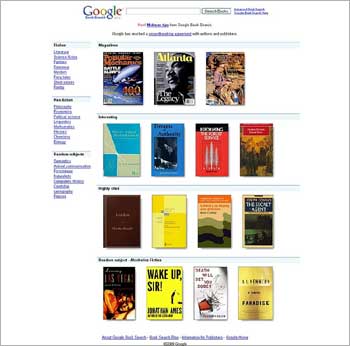Three years after Google stepped into China, it is on the verge of closing operations. Google may have taken the world by storm, but in China it's caught in a whirlpool.
Google's investigations reveal hacking attempts into email accounts of Chinese human rights activists.
Terming it as 'highly sophisticated', David Drummond, senior vice president of corporate development and chief legal officer, said in a blog post, "These attacks and the surveillance they have uncovered -- combined with the attempts over the past year to further limit free speech on the web -- have led us to conclude that we should review the feasibility of our business operations in China," Google has decided not to censor results on Google.cn.
"Over the next few weeks we will be discussing with the Chinese government the basis on which we could operate an unfiltered search engine within the law, if at all," he said.
Drummond said the company realises that this may well mean having to shut down Google.cn, and potentially its offices in China. . . .
Google's battle in China
Image: The bitter China story.Evidence indicated that the attackers were trying to get access to Gmail accounts of Chinese human rights activists, according to Drummond.
At least 20 other large companies including finance, Internet, media and technology were similarly attacked, according to Google.
Google has been severely criticised for its move to enter China, agreeing to China's censhorship demand.
But the compromise it took to step up its presence in the communist nation and boost its revenues has taken a beating
From censorship deals, blocking of You Tube, copyright issue with Chinese writers, the China story has been tumultuous for Google since the beginning.
Google's battle in China
Image: Google's motto.Going against the company policy, Google had agreed to remove certain sensitive information from the search results.
Critics and protestors in the US had lashed out against Google China, which proclaimed 'Don't be evil' as its motto.
"We launched Google.cn in January 2006 in the belief that the benefits of increased access to information for people in China and a more open Internet outweighed our discomfort in agreeing to censor some results. At the time we made clear that "we will carefully monitor conditions in China, including new laws and other restrictions on our services. If we determine that we are unable to achieve the objectives outlined we will not hesitate to reconsider our approach to China, " David Drummond said.
After all, the company could not afford to ignore a fast growing internet market, with 360 million users.
Google's battle in China
Image: Outrage against Google.Organisations like Amnesty International and human rights activists across the world criticized Google for supporting conditions that violate human rights and freedom of expression.
Microsoft and Yahoo have also come under severe criticism on its China operations for colluding with the government against freedom of expression.
While Google.com displays images of the 'Tank Man' and the 1989 Tiananmen protests, Google.cn displays tourists, beautiful scenery near Tiananmen Square. The site makes sure that black listed and sensitive issues do not get displayed.
Google's battle in China
Image: Chinese lanterns in the Google logo.Whether our critics agree with our decision or not, due to the severe quality problems faced by users trying to access Google.com from within China, this is precisely the choice we believe we faced. By launching Google.cn and making a major ongoing investment in people and infrastructure within China, we intend to change that, Elliot Schrage had said in 2006.
Google has been offering a Chinese-language version of Google.com since 2000. It turned out to be slow and unreliable. Google.com appeared to be unreachable around 10 per cent of the time. According to Google, the reason was the extensive filtering performed by China's licensed Internet Service Providers (ISPs).
Without a local presence, the problems of speed and unreliability could not be solved. While rivals like Baidu grew from 2.5 per cent in the search market in 2003 to 46 per cent in 2005, Google dropped to below 30 per cent.
The blockade had helped Google's competitor Baidu.com, often called the 'Google of China'.
Google had to take a tough decision, a balancing act keeping in view the censorship diktat. Finally, Google China was founded in 2005.
On January 27, 2006, Google.cn was launched. Google.cn will make a meaningful - though imperfect - contribution to the overall expansion of access to information in China, Google had said.
It promised to give notification to Chinese users whenever search results have been removed, to protect user privacy, Google said it would not maintain on Chinese soil any services, like email, that involve personal or confidential data and offered continued availability of Google.com, the unfiltered Chinese-language Google.com service.
However, the Google ride was not easy in China. It continued to face several hurdles despite adhering to the strict Chinese terms.
Google's battle in China
Image: Google's oline book search initiative.Photographs: Courtesy, Google.
Chinese writers accused Google of copyright infringement in October.
The writers objected to suing their book extracts without their permission. They sought an apology and demanded compensation.
The Communist Party's newspaper, People's Daily criticised Google of censoring its website on the copyright dispute.
People's Daily said its online book section was blocked from Google searches via a malware warning.
Finally, Google had to send an apology to the writers. The company also agreed to sign a deal on digitising content fron the books.
Google's battle in China
Image: China, a tough market.Users just got an error message: 'Network Timeout. The server at youtube.com is taking too long to respond.'
It later removed the blockade. China continues to censor and block sites that it finds unaceptable.







article